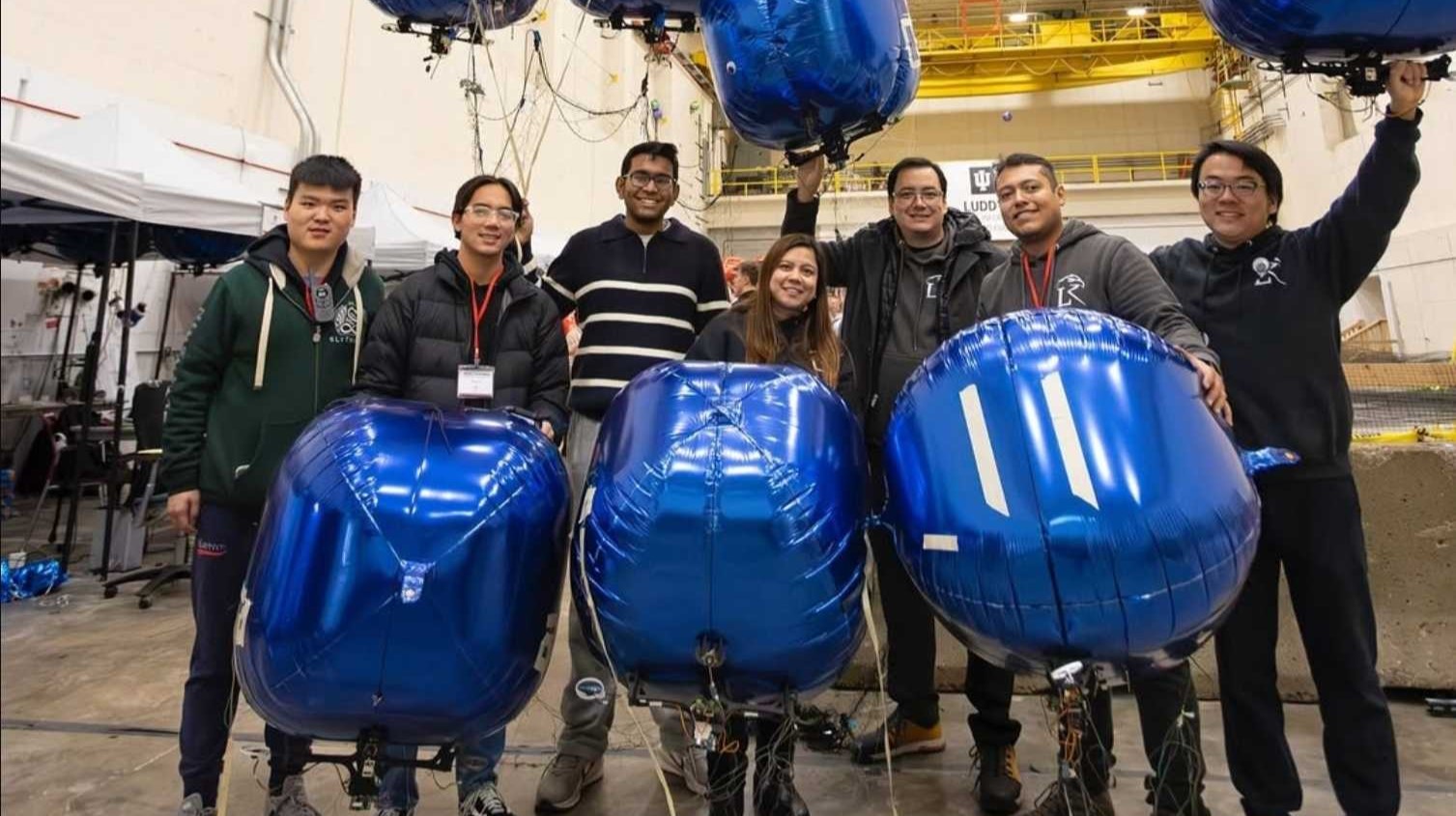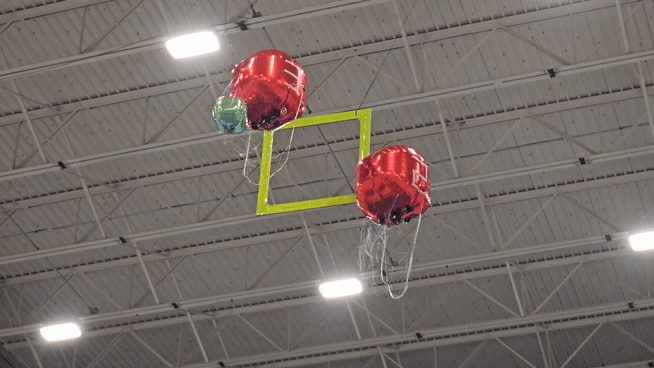
A team of Lehigh graduate and undergraduate engineering students earned first place in the Defend the Republic (DTR) drone competition, held November 18-22, 2024, at Indiana University.
Lehigh faced competitors from Arizona State University, Baylor University, George Mason University, Georgia Tech, Indiana University, and the University of Michigan at the tournament-style event, which is held twice a year. (Lehigh hosted DTR in November 2023.)
At DTR, teams deploy specialized lighter-than-air autonomous vehicles (held aloft by helium balloons) in a force-on-force challenge: Their cutting-edge unmanned aerial vehicles (UAVs) seek to capture floating helium balloons and deliver them to the opponent’s goal, while defending their own goal.
The competition showcases advancements in autonomous systems and “presents a unique opportunity for participants to develop innovative solutions that can compete in complex, real-world scenarios, focusing on key areas such as rapid vehicle design, communication, and edge computation,” according to the competition website. “By designing and controlling UAVs, teams demonstrate their ability to tackle the challenges of the future.”
PhD candidate Jiawei Xu captained the Lehigh team alongside PhD students Diego Salazar D'Antonio and Subhadeep Koley and undergraduates Thong Vu ’25, Tony Wu ’25, and Liz Muñoz.
David Saldaña, an assistant professor of computer science and engineering, advises the team. Saldaña leads Lehigh’s SwarmsLab and is a member of its Autonomous and Intelligent Robotics (AIR) Lab.
“Our team achieved the highest season score and earned first place in the competition,” says Saldaña. “This marks a historic milestone and is a reflection of the incredible dedication and talent of our current team members. In previous competitions, we won the highest season score and the most innovative design, but this year, we reached the top by winning the competition.”
 About 30 students, including members of the SwarmsLab student club, have contributed to the team over the past two-and-a-half years Lehigh has participated in DTR. Saldaña says their collective efforts have shaped engineering and research ideas demonstrated in this competition.
About 30 students, including members of the SwarmsLab student club, have contributed to the team over the past two-and-a-half years Lehigh has participated in DTR. Saldaña says their collective efforts have shaped engineering and research ideas demonstrated in this competition.
“Our success was founded on developing probabilistic agents—the smallest, lightest, and simplest robots in the competition,” he says. “Although their individual capabilities were modest compared to other teams' vehicles, their strength as a group and their ability to maximize collective performance expectations truly set them apart.”
During the competition, the team also “showcased a new multi-vehicle coordination method based on cable tension between vehicles, which enables coordination without requiring communication or perception.”
The SwarmsLab currently has three papers under review for the 2025 IEEE International Conference on Robotics and Automation (ICRA) on their work around robot design, probabilistic agents, and physical intelligence using cables.
